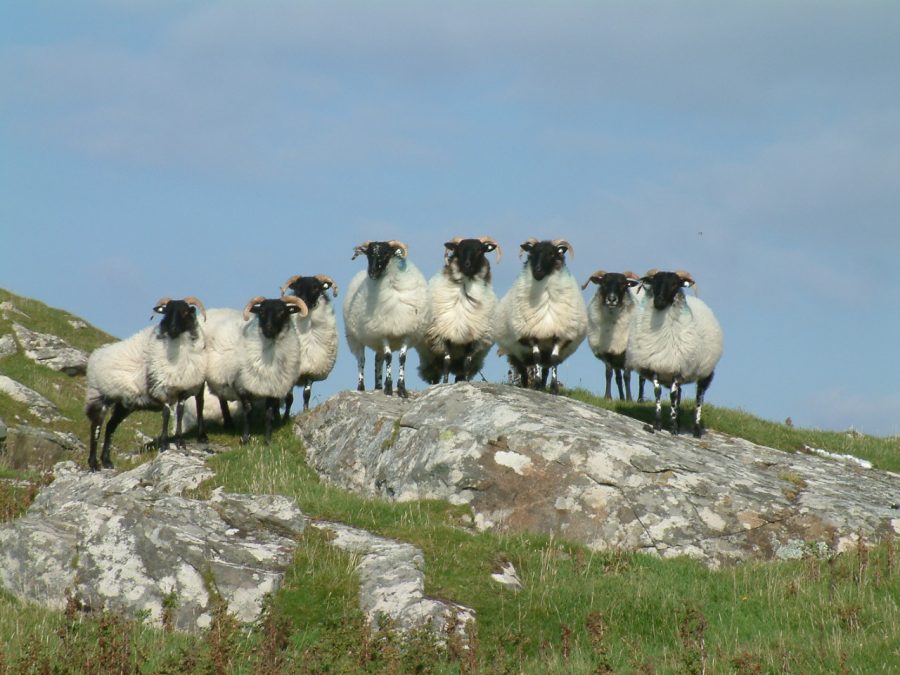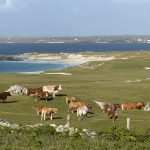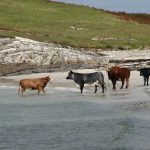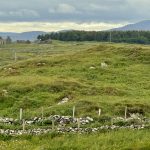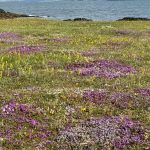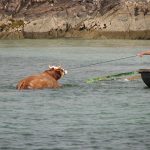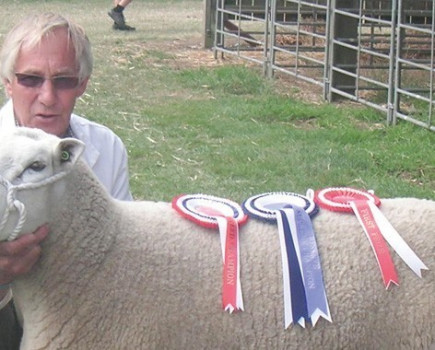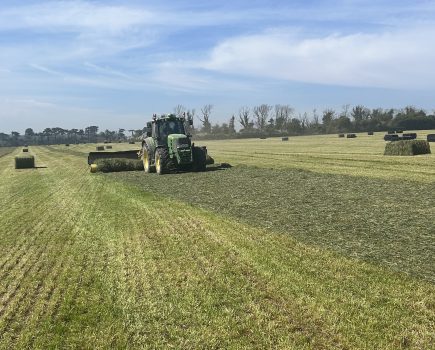My family is lucky to have inherited a small holiday home on the Mannin peninsula in Ireland. A derelict, two-roomed cabin in 1968, it has been gently enlarged and modernised over time. The early years were glorified camping, with no electricity or mains water. We cooked on a turf range, read with paraffin lamps and hand pumped rainwater from a tank.
Over 50 years of regular visits, our family has become part of the local furniture as we have got to know and admire many of the local families, now to the fourth generation, with histories going back centuries. All these families have close association with the land and with the passage of time, power, mains water and the internet have all arrived.
Farming is never a sinecure, but trying to make a living off 50 acres of unforgiving rock and bog, with gorse and bracken often dominating grass, raises the difficulty many notches. And that is the lot of farmers in the far west of Ireland. Connemara is an outstandingly beautiful part of county Galway, but easy farming it is not.
For those unfamiliar with the island of Ireland, it is a bit like a saucer ringed by hills and mountains around the coast with flat, sometimes boggy, lands in the centre and riven by great lochs and rivers like Corrib and the Shannon. Farming the centre is like that in much of the UK, with an emphasis on dairy and beef, but Connemara is unique and with a long human history.
When the interfering Anglo-Saxon landlords unceremoniously left Connemara following independence, tenants were each granted title to some 50 acres. But such land that was flat and workable was barely sufficient to sustain a family with potatoes and vegetables, let alone cereals. The rough ground provided for a few kine and some sheep. The great potato famine of 1845 to 52 is etched deep in the collective memory. Today it is clear that this terrain, which needs care, cannot provide a reasonable living for a modern family. Significant additional income is essential.
Fortunately there are still sturdy young Irish men and women prepared to take on these challenges for the love of it, and David and Emma O’Reilly, in their early thirties, are great examples, keen to live, work and rear a family in this magical part of the world.
We have known David’s family since his late grandfather, Markey, farmed there. David was born on the farm. Growing up a few miles away in the market town of Clifden, he excelled at rugby and now plays for Connemara. He has yet to hang up his boots and bears the scars of many hard-won matches. He also volunteers for the local lifeboat service and had, a couple of days before my visit, taken part in a forlorn night recovery of a drowned Inishbofin fisherman. His infectious enthusiasm for life remains undimmed and now, returning to academia, he is about to qualify as a civil engineer, which will provide financial security.
Emma hails from inland County Galway and claims some Iberian blood, dating from the Spanish Armada’s wreckage off Ireland’s west coast in the autumn of 1588. She is a district nurse with a very busy practice. Her ready smile, effervescent sense of humour and positivity must give patients great comfort and reassurance. She clearly enjoys challenges and, as if it is not enough having a toddler and new baby, she is studying for the Government’s “Green Cert” and, once qualified, will gain access to acreage and environmental grants. The two off-farm careers will enable David and Emma to live in the house David’s parents, John and Mary Margaret, built on the family’s farm and fulfill their dream to rear their children in Mannin.
Being in the EU, Ireland supports farming, so the couple receive area payments and various environmental grants that help them manage the land. With other members of the family also living on the family acres, there are diplomatic niceties to be observed, but they are looking to take on more land as it becomes available from a changing demography, with fewer farming residents.
More land will allow some expansion of their herd of a dozen crossbred suckler cows and followers. Calves are sold as weanlings either off farm or in the Clifden mart. Winter forage is prohibitively expensive, so keeping store calves over winter is impractical. The cows are out wintered on in-bye land to calve in spring. David and Emma have been using AI, but getting technicians when needed is tricky, so hiring a Limousin bull for a few weeks is the preferred, if risky, option.
The UK’s Brexit has dampened the market for stock, which is volatile, with a price premium for shapely continental crosses. There is now little doubt that Brexit has harmed our own economy and, gratuitously, also Ireland’s. I have yet to see any of the promised benefits and consider the whole exercise to be one of collective madness and serious self-harm, but we are stuck with it.
The calcareous sandy coastal rim in Connemara is known as machair grassland, unique in the world and only found on western coasts of Ireland and Northern Scotland. The habitat has an incredibly rich flora on which stock do very well. Local farmers share commonage rights and receive acreage payments in proportion to their in-bye holding.
For many years the machair suffered from over grazing and severe human holiday pressure during summer, but since Covid-19 the commoners have taken steps to reduce radically this human pressure by excluding tourist vehicle access and removing stock over winter. The result is a transformative resurrection of the machair ecosystem. An area has been successfully predator-fenced to allow lapwings to breed safely, aided by a cull of crows. Conservation is being taken seriously and livestock is an important part of the mix. Machine cutting peat has also been banned to protect valuable bogs.
A measure of success has been the rise in resident choughs, waders and migratory sand martins. The countryside of the whole British Isles needs such care and attention from environmentally aware farmers like David and Emma O’Reilly, for there is little doubt that corporate or industrial farming, focused on maximizing financial returns, will further degrade our fragile ecosystems.
- David’s cows waiting to come in
- Heifers landed
- In-bye land
- Machair in full bloom
- David & Emma
- Swimming heifers back from island grazing
For more like this, sign up for the FREE South East Farmer e-newsletter here and receive all the latest farming news, reviews and insight straight to your inbox.

